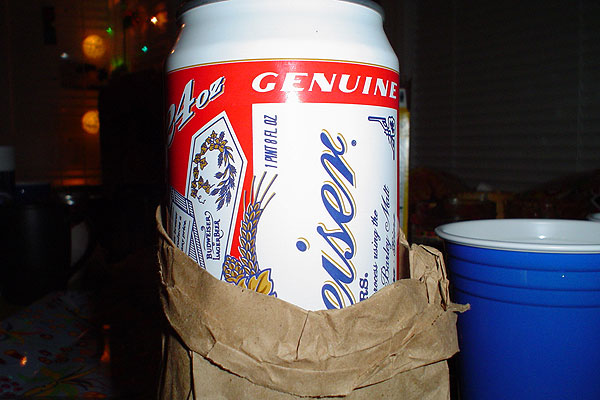
The last time we left you, beer (news) junkie, we were looking at two pieces of alcohol legislation. One, the Community Alcohol Regulatory Effectiveness Act, which would reinforce the ability of states to regulate alcohol sales (to the extent of violating the Commerce Clause, critics say).
The second is an issue currently making its way through the Illinois legislature, which Guys Drinking Beer has done an estimable job following (and advocating). Here’s how it works:
* Anheuser-Busch wants to distribute its own beer. It’s enormous, obviously, and doesn’t need the three-tier system of producer, distributor, and retailer to succeed–it has the resources to go straight to the retailer.
* Small craft brewers also want to be able to distribute their own beer, for the opposite reason: being small, they have trouble getting the attention of the state’s powerful distributors, which serve as a gatekeeper for beer in Chicago.
* Craft brewers of all sizes, and their advocates, don’t want Anheuser-Busch distributing, because the distributors (provided you can get in with them) help level the playing field somewhat. Since big beer sales are flat and craft brews are rising, this is a nontrivial economic issue.
We’re at this point because of bad law–out-of-state brewers have not allowed to distribute in Illinois, but in-state brewers (none of which are large) have been for the past couple years. A-B challenged; for reasons of interstate commerce, it was a bit of a softball.
Maintaining the power of beer distributors is politically appealing, since the distributors are powerful (see Wirtz, Rocky). But it’s also popular because of grassroots interest in craft beers. The obvious–and probably more constitutional–compromise is to allow self-distribution only from small craft beers.
And that’s what’s happening, as Emily Bryson York and Josh Noel report today. The bill to do so had been stalled, but it’s back, so the discussion is heating up again.
I was surprised to learn that the laws are much more restrictive in Texas. They’re going through their own legal fight over beer sales, but in this case it’s to allow brewpubs to sell in grocery and liquor stores. Beer-distributor lobbyists have been working the legislature like a speedbag, and their argument will sound familiar:
But Mike McKinney, a lobbyist with the Wholesale Beer Distributors, says too many exceptions might invite industry giants to lobby the Legislature to change the system.
"We don’t want Anheuser-Busch to own a chain of grocery stores or nightclubs," McKinney said.
It’s the tied-house slippery-slope argument.
Of note: "In 2009, Texas brewpubs [legal only since 1993] produced 12,755 barrels of beer and grossed $31.9 million in sales, according to a report commissioned by Texas Beer Freedom." That’s about a tenth of what Goose Island produced last year, according to York and Noel.
In Chicago, we managed to kill off the tied houses through the enforced three-tier system (which they also have in Texas), but City Council will soon consider enshrining their remnants with landmark status. The Commission on Chicago Landmarks’ report (PDF) is a good read.
Anheuser-Busch InBev took it on the chin from beer nerds when they bought out Goose Island, but have some sympathy: A-B was taken over by InBev in 2006: small fish getting devoured by big fish, getting devoured by even bigger fish. Julie MacIntosh, a Medill grad, recently published a book on the takeover, Dethroning the King. It’s on my list.
Photograph: kerryvaughan (CC by 2.0)



